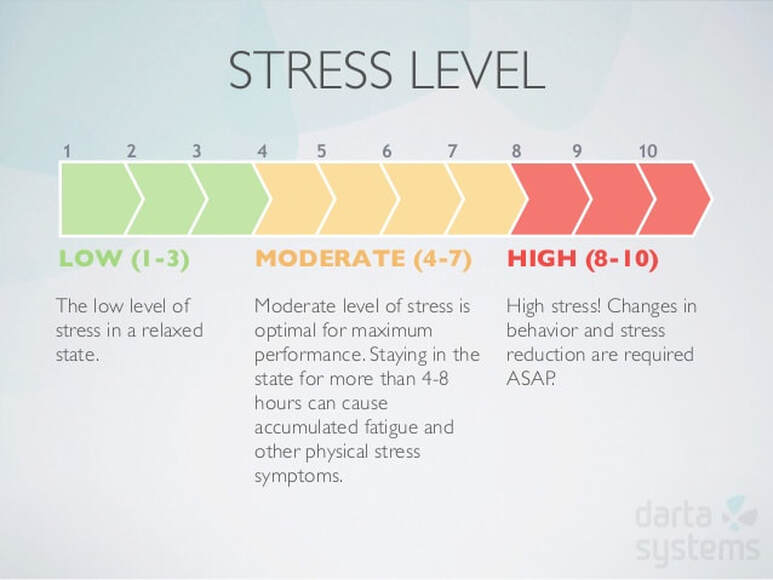 Takeaways: • Self-assessment techniques can be as effective as clinical measures for stress • Regular stress awareness can lead to better physical and mental health • Developing stress coping skills is crucial for managing stress effectively Most online stress measurement tools use a "life-event" method to determine your stress levels. They consider major events like divorce, job loss, or illness as indicators of high stress. However, this approach doesn't account for daily activities and how we react to them. Smaller but significant stressors, like a difficult boss or challenging relationships, can build up over time. A better way to assess stress is similar to how we measure exercise intensity. The Rating of Perceived Exertion (RPE) scale lets you estimate how hard you're working out without special equipment. You rate your effort from 6 (no exertion) to 20 (very intense). This method is often as accurate as using heart rate monitors. Dr. Sheldon Cohen of Carnegie Mellon University developed a similar technique for stress called the Perceived Stress Scale (PSS). It asks you to estimate your stress based on uncertainty, lack of control, and overload in various areas of your life. You can find online tests based on this method to self-assess your stress levels. I prefer a printed version of this test. It takes just a few minutes to complete the list. https://www.das.nh.gov/wellness/Docs%5CPercieved%20Stress%20Scale.pdf (If this link does not work – use keyword Cohen PSS in your favorite search engine) I like the online tool for Cohen PSS - by Kresser Institute because it does not require you to provide an email address. You can share your email if you want a copy of the test. I just use the copy and paste option. kresserinstitute.com/tools/pss/ The importance of stress awareness cannot be overstated. Research has shown that individuals with higher perceived stress, as measured by the PSS, often face more significant health challenges. For example, higher PSS scores have been associated with:
These findings highlight why monitoring your stress levels is crucial for maintaining good health. By recognizing our stress levels, we can take steps to reduce them and potentially avoid these negative health outcomes. To effectively manage stress, it's important to develop coping skills. There are two broad ways to deal with stress - directly and indirectly. Direct stress-coping skills address the underlying cause of stress, such as time management, organization, assertiveness, and asking for help. Indirect stress-coping skills help you feel better despite your stress, like regular exercise, spending time in nature, engaging in social activities, and taking time to relax every day. Building these stress management skills takes effort and time. A lot of stress management has to do with fundamental life habits - sleep, diet, and exercise, as well as engaging in your community and taking time to do the things you enjoy. Action Steps:
By focusing on stress awareness and developing effective coping strategies, we can take control of our mental and physical health. Remember, understanding your stress is the first step towards managing it effectively. We'd love to hear about your own methods for assessing and managing stress levels! If you're interested in one-on-one coaching (remote or face-to-face) on using your smartwatch to monitor stress levels or developing personalized stress management strategies, please reach out using the registration form on our workshop page. Your experiences and insights can help you and others on their journey to better stress management and overall well-being. Please remember these tests and screenings are not a substitute for a clinical evaluation. Contact a health professional for more information and a complete exam.
0 Comments
Your comment will be posted after it is approved.
Leave a Reply. |
a guided finger meditationEngage your senses with soothing music, guided imagery and a labyrinth tracing activity which leverages the power of touch. Click the album cover to learn more. Categories
All
|

 RSS Feed
RSS Feed